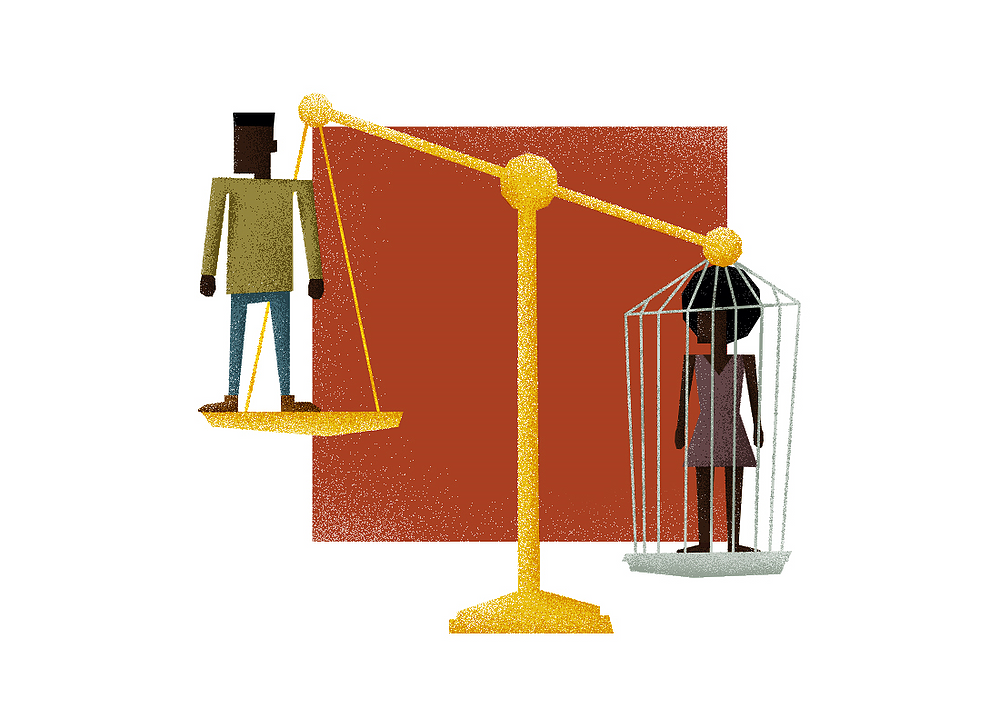
CONFRONTING PATRIARCHY IN AFRICAN SOCIETY
Inequality among humans has existed right from the inception of life. But there is an inherent trait in humans that fuels the cravings for control and subsequent opposition to subjugation irrespective of gender, race, or social class. However, in life, there are two fundamental categories people must fall under; leaders and followers. You are either leading or being led, but in certain circumstances, one can function in both capacities. Ideally, leadership positions should be based on qualification, but the concept of patriarchy has made leadership a position bestowed on precisely the human males by societal values or tradition. This article attempts to break down the contextual and factual relationship between gender inequality and patriarchy in Nigeria and how patriarchy is currently being tackled with feminism.
WHAT IS PATRIARCHY
It is a social system where the supremacy or control of a social structure is bestowed on the eldest male available, with the subsequent males considered as the only worthy benefactors of the inheritance of this power.
PATRIARCHY IN AFRICA
In Africa, patriarchy is fueled by tradition. Africans are fundamentally indigenous people with diverse cultures and traditions, but our diversity seems not to affect our unanimous agreement to patriarchy. It is practised in virtually all regions in Africa, and in some cases, it is extreme.
Like most countries in Africa, Nigerian is patriarchal, with inequality in gender relations that has subjected our women to subordination. However, there is an age-long dispute amongst African scholars that this patriarchal situation wasn’t always this way. It is a consequence of introducing un-African determinants such as the Islamic and Christian religion, education, colonization, etc. They disagree with Westerners’ opinions, believing that Nigeria was matriarchal, just like most African societies.
On an unbiased consideration, patriarchy affects both genders. However, it is safe to opine that women are unarguably the most affected. It more or less makes the woman insignificant and a second-class citizen.
BREAKING DOWN PARTRIACHY THROUGH FEMINISM
The fundamental purpose of feminism is to liberate the woman from all forms of oppression and unifying women of all nations to this common cause.
Patriarchy birthed feminism. The concept of patriarchy has been redefined by feminists while investigating and comprehending the root cause of men dominating women in various facets of life. Consequently, the term patriarchy has been used by feminists to point to a “deliberate organization of systematic exaltation of male child supremacy and subordination of the female child.”
Recently, we are currently in a situation where not only are women’s human rights being disputed but their undeniable accomplishments are being subverted as well. And this is happening on both the local and global scales despite the increase in advocating for women`s human rights by renowned feminists. There seem to be suppressed tensions between the feminist identity and the male identity. It also appears that men are opposed to feminism. Their position as males deters their comprehension of the unfair female experience, which renders them incapable of being part of feminist moves.
NIGERIAN FEMINISM
The idea of Nigerian feminism is difficult to establish because most pronounced Nigerian feminists have participated in the movement more as black or African feminists than as Nigerian feminists. So, their efforts have had a global perspective than a precisely Nigerian one.
One of the first cases of pronounced feminism in Nigeria was in 1914 when brave southern Nigerian women took to the streets to protest against both British and indigenous men in agitation for neglecting them in the institution of indirect rule in southern Nigeria.
In the year 1925, Nigerian women also rose to refuse colonial values and imposed taxes vehemently. This resistance escalated in 1929 to the revolt we now know as the “Aba Women’s Riot,” with the participation of an estimated 25,000 women. Their efforts bore favourable fruits as the British were forced to bow to their demands. This women’s uprising is still recognized as the first significant opposition to British rule in Nigeria during the colonial period.
In 1983, The WIN (Women in Nigeria) was founded to establish an “ideologically feminist movement” in Nigeria. In 2008, it was reformed to the present Nigerian Feminist Forum (NFF).
Presently, groups such as Feminist coalition, Afri-Dev Info, Stand To End Rape, and The Nigerian Women’s Trust Fund, championed by the likes of Kiki Mordi, Oluwaseun Ayodeji Osowobi, Odunaya Eweniyi, etc. are publicly recognized as platforms with strong feminist beliefs. They have created awareness for the ordinary Nigerian woman and stood up various issues concerning women’s discrimination.
Tools like art and literature have been used to promote feminist ideologies. The influence of Writers like Chimamanda Adichie and Ayobami Adebayo on the feminist narrative in Nigeria has been significant. They are using literature to create feministic awareness. The internet has also played its role; particularly taking advantage of social media, remarkable feminist awareness has been propagated by Nigerian feminists. Powerful hashtag movements such as ‘TheMeToo’ and ‘FemaleInNigeria’ have been created to encourage Nigerian women to voice against the indiscrimination experienced by women in the country.
We have to ask, is Nigerian feminism inclusive? Does it include speaking up against the struggles and discrimination of women with little or no economic power? Or are Nigerian feminists just advocating for issues concerning the elite or middle-class women while ignoring the interest of the less privileged Nigerian woman?
For example, Famous writer Chimamanda Adichie, one of the country’s leading feminists who has played a significant role in spreading feminism in Nigeria, has always faced accusations of solely focusing on issues of the middle-class feminists like gender inequality, misogyny, and sexual objectification.
Gender roles are more conspicuous with the Nigerian middle class, although influenced by Western cultures, religious beliefs and culture also play an essential role. However, women in this social class are more informed about feminism and its concepts than their impoverished counterparts. But to determine the true nature of general Nigerian feminism, one has to first look at the kind of issues that attracts the interest of feminists within the country, which should tell if the feminism practised in Nigeria is inclusive or selfish.
Unfortunately, Unstable democratic institutions, an antiprogressive resistance, and an economic meltdown have worsened the dire situation of African women, thus weakening the chances of feminist movements to fully express their agitation for the human rights of the female child.
CONCLUSION
Patriarchy runs deep in the Nigerian society such that it will be difficult to abolish. To tackle patriarchy in Nigeria and the world in extension, everyone needs to adopt the core values behind feminism, male and female alike. However, mass education on these cores values is essential to prevent misconception.
Written by Simeon Samuel for CoolAfricanMerch
